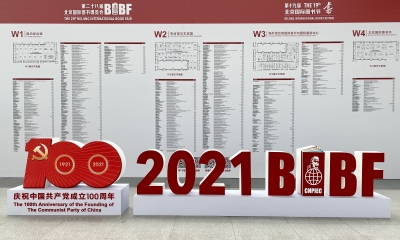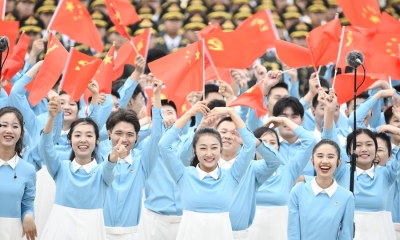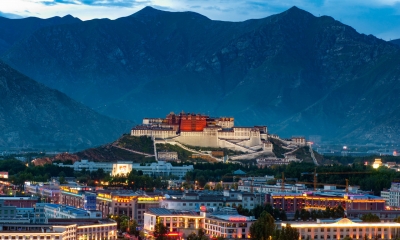A ‘New Golden Era’ of International Trade Needs the Right Legislation
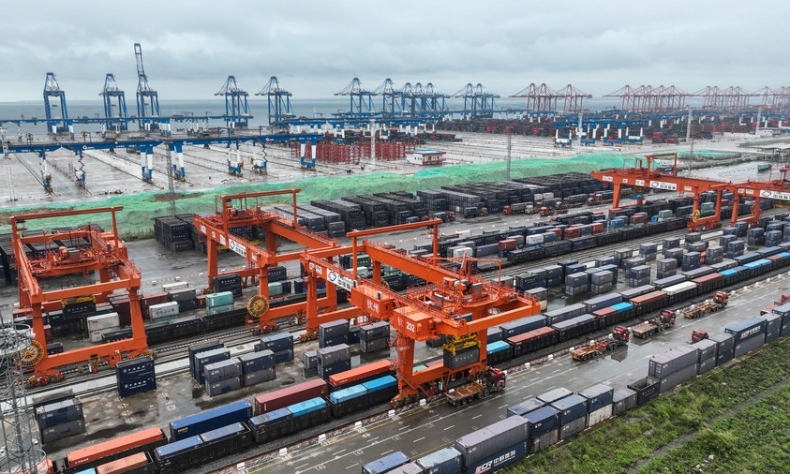
Far from attempting to realize a new golden era of international trade, the legislative trend in the U.S. threatens to constrain global economic growth.
Technology and finance combined with the right legislation can help reimagine the border and deliver “a new golden era of international trade,” Lord Chris Holmes said during a keynote address to the Asian Banker’s Future of Finance Summit in Beijing in late July.
“Imagine being able to completely reimagine the border because of the legislation and the financials. Trucks [and] planes being able to just flow through the border by dint of that finance and the technology,” he said. “Imagine having a Central Bank Digital Currency on that trade flow or those supply chains, enabling atomic settlement at the border.”
Holmes’ vision for a new “golden era” — a nod to former UK prime minister David Cameron’s vision of a “golden era” in UK-China relations — was well received at the summit of international financiers and business leaders.
Particularly in the face of low economic growth and rising political tensions, Holmes’ call for greater international collaboration was a breath of fresh air. “It’s trade that can get us out of this current situation,” he continued, adding that the world needs to develop “collaborative global solutions” to address shared challenges and threats.
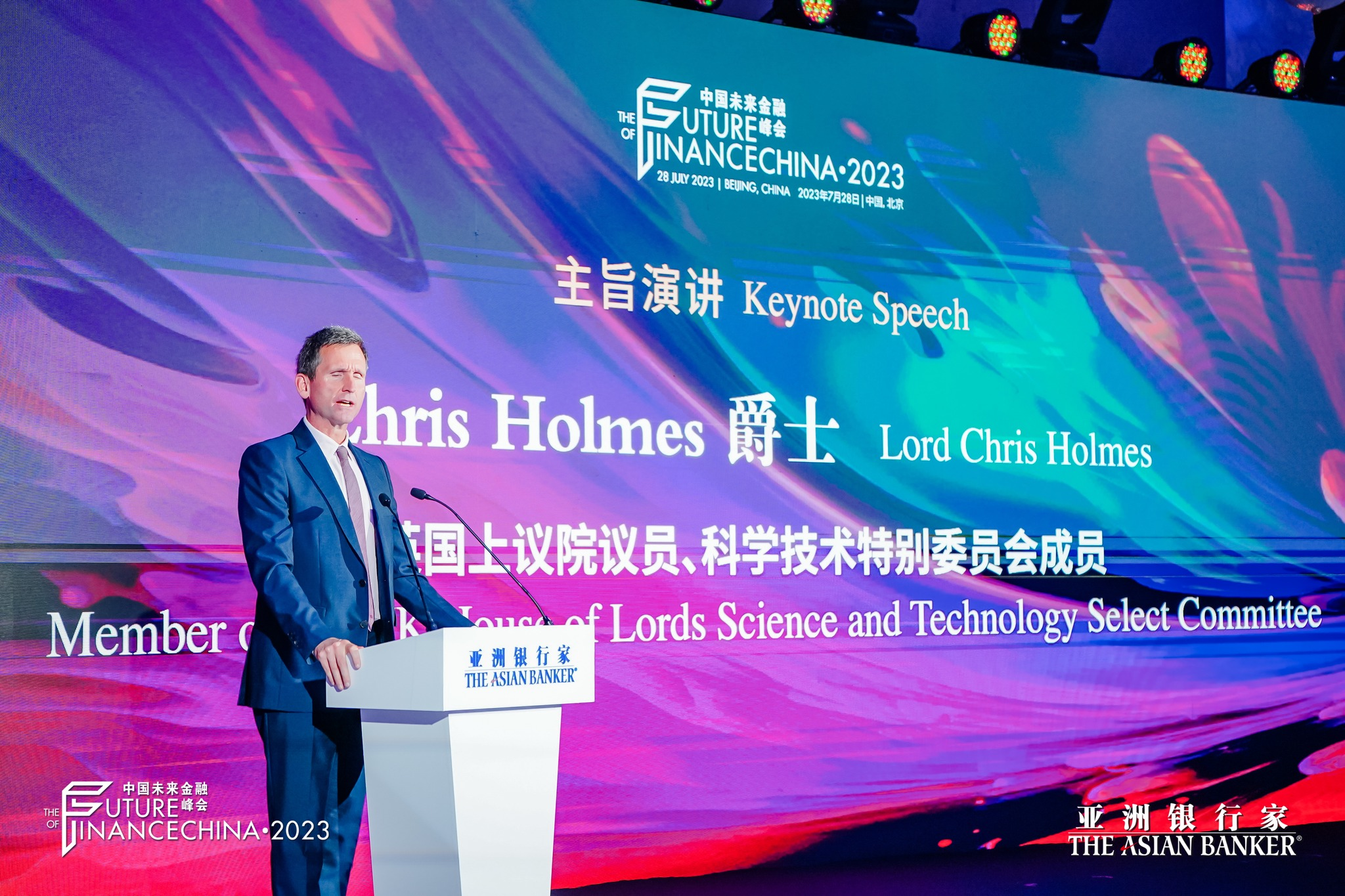
Political obstacles
The problem with Holmes’ vision, however, is that it isn’t widely shared by his political colleagues in Westminster, less those on Capitol Hill. Labelling China as a “systemic challenge” during his first major foreign policy speech, UK Prime Minister Rishi Sunak declared that the “Golden era” between China and the UK is over. Meanwhile, the Biden administration continues to escalate sanctions and enforce sweeping tech restrictions against China.
Some politicians have taken an even more hawkish position and are calling for a complete decoupling with China. Rep. Mike Gallagher, chairman of the House Select Committee on China, said American businesses need to “take off the golden blindfolds” and open their eyes to the so-called strategic risk when it comes to operating in China. “Business leaders, if they think they can continue business as usual, are ignoring political reality,” he added.
The political reality is that Washington views Beijing as the “greatest threat” to the U.S.-led world order and is actively taking steps to contain China’s development and decouple sections of its economy under the guise of national security.
This is where Holmes’ call for “the right legislation” comes into play. Technology and finance are instrumental in facilitating and bolstering trade but are ultimately subject to the prevailing political climate. The British government, for example, has blocked Huawei from its telecommunication networks. The Dutch government has prohibited ASML from selling its advanced chipmaking equipment to China. Meanwhile, Washington has blocked global chipmakers that use U.S. technology from selling its most advanced chips to China.
Businesses in Russia have been completely cut-off from the U.S.-led global financial system. Companies in Cuba, Iran, North Korea, Syria and Venezuela are also subject to “comprehensive sanctioning,” meaning that almost all commercial and financial transactions with entities and individuals in those countries are prohibited under U.S. law.
An additional 17 countries — including Afghanistan, Belarus, Democratic Republic of the Congo, Ethiopia, Iraq, Lebanon, Libya, Mali, Nicaragua, Sudan, and Yemen — are subject to targeted sanctions.
All told, more than 9,000 individuals, companies and sectors in those economies representing little more than one-fifth of global GDP, are subject to some form U.S. sanctions.
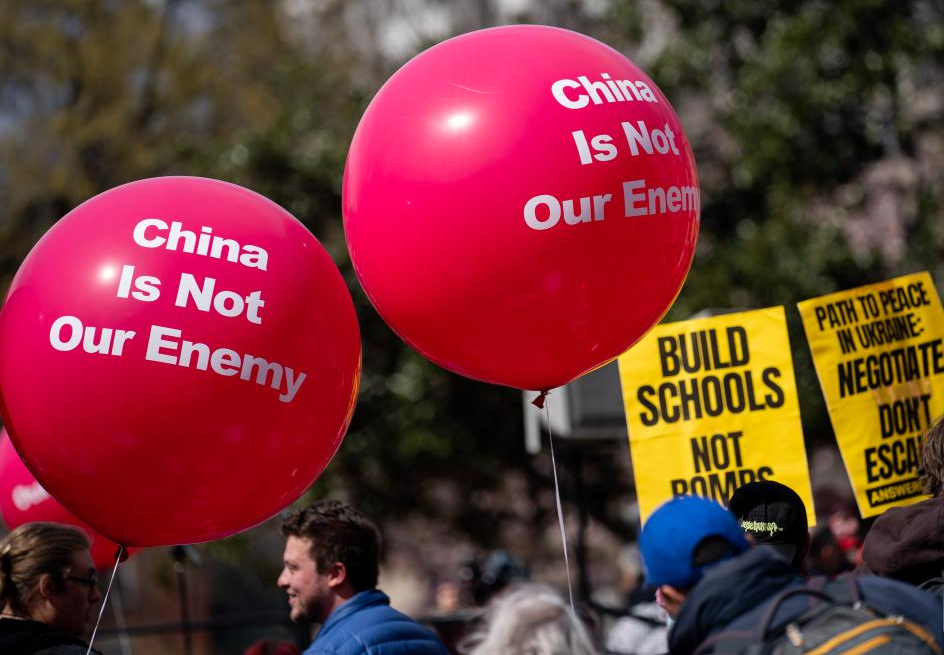
The right legislation
Far from attempting to realize a new golden era of international trade, the legislative trend in the U.S. threatens to constrain global economic growth.
For China’s part, outside of retaliatory tit-for-tat sanctions, Beijing has proven committed to removing trade barriers and increasing the free flow of goods, capital and services. Indeed, in the wake of U.S. abandoning its longstanding commitments to free market orthodoxy, China has emerged as the global champion and defender of economic globalization.
“Economic globalization has powered global growth and facilitated movement of goods and capital, advances in science, technology and civilization, and interactions among peoples,” said President Xi Jinping during his 2017 address to the World Economic Forum. “We should act pro-actively and manage economic globalization as appropriate so as to release its positive impact,” he added.
Beyond the rhetoric, China’s average Most Favoured Nation (MFN) tariff rate has been progressively lowered from 15.3 percent in 2001 to 7.5 percent in 2020. Meanwhile, Beijing has improved investment and trade conditions through opening of pilot Free Trade Zones and introducing Pre-establishment National Treatment (PNT),the Negative List (NL) system and Foreign Investment Law.
As a result of these reforms, China’s economy has more than doubled, growing from 8.5 trillion U.S. dollars in 2012 to 17.7 trillion in 2022. Foreign direct investment into China has also grown by more than 1,500 percent during the same period, totaling more than 188 billion U.S. dollars. On the fintech front, China has introduced the digital yuan which, as of June, recorded 950 million transactions worth some 250 billion U.S. dollars (1.8 trillion yuan).
This is all to say, Beijing recognizes how finance, technology and the right legislation can deliver economic miracles. The question remains, however, whether Washington is prepared to abandon its containment and decoupling agenda.
“The containment policy will fail because China has already integrated itself with the world, [even] more than the U.S. has,” said Kishore Mahbubani, former president of the UN Security Council. “If the U.S. tries to contain China, you will find instead of the U.S. isolating China, the U.S. will find itself isolated from the rest of the world.”
The article reflects the author’s opinions, and not necessarily the views of China Focus.
 Facebook
Facebook
 Twitter
Twitter
 Linkedin
Linkedin
 Google +
Google +




